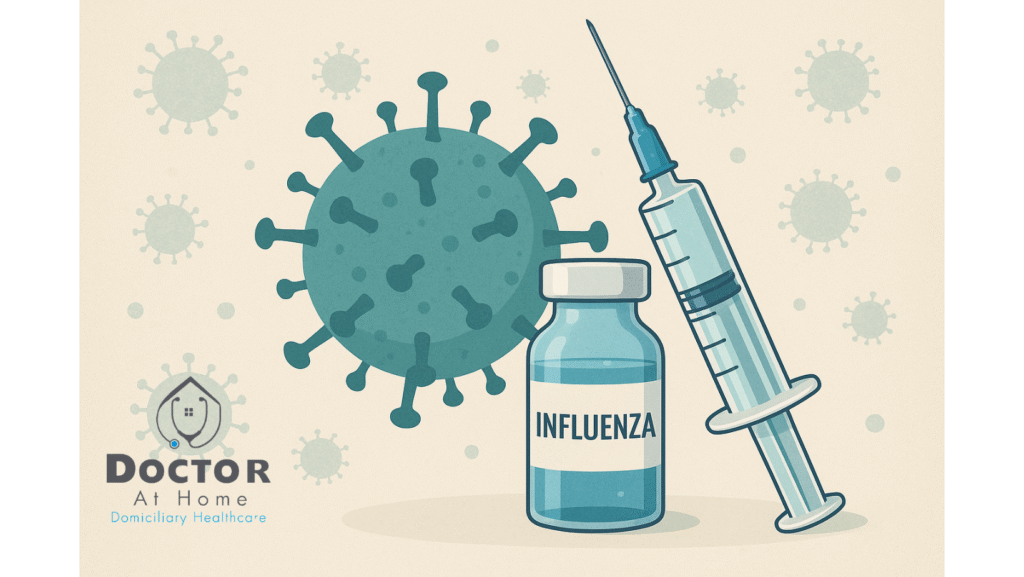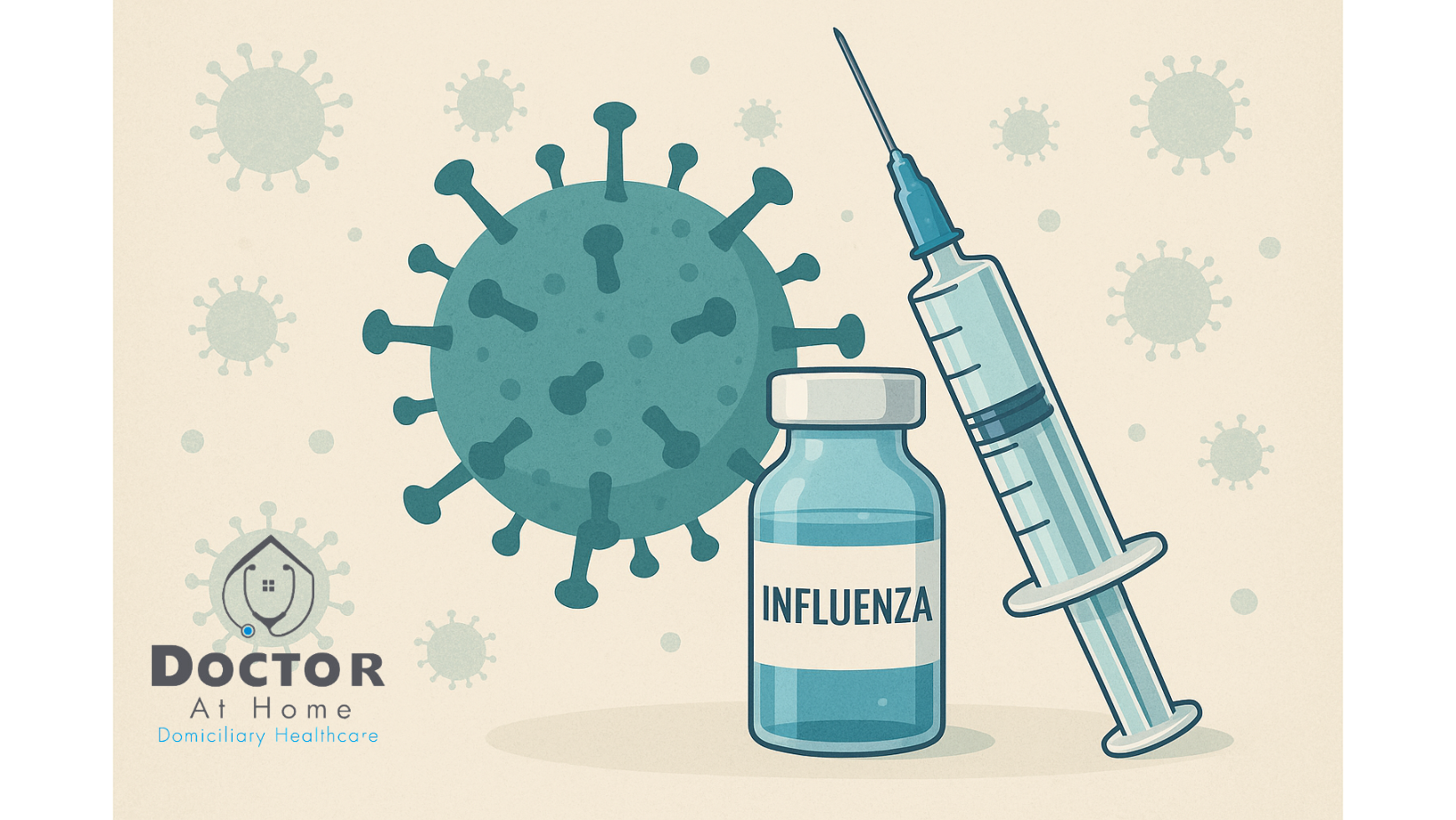
Introduction

Seasonal influenza is one of the most common respiratory infections during colder months and climate transitions. The best tool to reduce its complications is the influenza vaccine (Flu shot), a safe biological product that is updated every year to provide protection. In this article, we explain what type of vaccine it is, which viruses it targets, why it must be administered annually, who should get it, who should avoid it, and what to expect after receiving it.
What type of vaccine is the influenza vaccine (Flu shot)?
The influenza vaccine is an inactivated vaccine, which means it contains fragments of the virus that cannot cause the disease. Its function is to stimulate the immune system to produce specific defenses, ready to act in case of real exposure to the virus.
Which viruses does this vaccine fight?
Every year, the World Health Organization (WHO) identifies the influenza strains that circulate most frequently worldwide. The vaccine is formulated accordingly to provide protection against influenza A (H1N1 and H3N2 subtypes) and influenza B, which are responsible for most seasonal outbreaks.
Why should it be administered every year?
The influenza virus has the ability to mutate constantly. This means that last year’s vaccine is not fully effective against new variants. That is why the immunization must be applied annually to ensure the body is protected against the most recent strains.
Who should get the influenza vaccine?
Although the influenza vaccine is recommended for the general population, it is especially important for the following groups:
- Adults over 60 years old.
- Children from 6 months to 5 years old.
- Pregnant women.
- People with chronic diseases (diabetes, hypertension, heart disease, asthma, lung disease, kidney failure, cancer, among others).
- Healthcare workers and individuals who are frequently in contact with vulnerable populations.
These groups are at higher risk of developing severe complications if infected.
Who should avoid the influenza vaccine?
While the vaccine is safe for most people, there are some contraindications:
- Infants under 6 months of age.
- People with severe allergy (anaphylaxis) to a previous influenza vaccine dose or to any of its components, such as egg protein.
- Patients with high fever or moderate to severe acute illness: vaccination should be postponed until recovery.
In case of doubt, it is always important to consult a doctor before getting vaccinated.
Symptoms after vaccination
Most people tolerate the vaccine without complications. However, some mild and temporary side effects may appear, such as:
- Pain or redness at the injection site.
- Fatigue or general discomfort.
- Headache or low-grade fever.
These symptoms usually disappear within one or two days and are a sign that the body is generating defenses.
What is the purpose of the vaccine?
It is important to clarify that the influenza vaccine does not guarantee 100% protection against infection. Its main purpose is to reduce the risk of severe complications such as pneumonia, hospitalization, or even death, especially in older adults, young children, and people with chronic illnesses.
In other words, even if you get infected, the vaccine helps the illness to be much milder.
Cities where we offer vaccination services
At Doctor at Home México we provide home influenza vaccination in different cities across the country. Below is the list of cities where we have coverage. Check availability in your location:
- Puerto Vallarta
- Cabo San Lucas
- San José del Cabo
- Mazatlán
- Culiacán
- Guadalajara
- Chapala
- Morelia
- San Luis Potosí
- Cuernavaca
- Mexico City
- State of Mexico
- Puebla
- Mérida
- Cozumel
- Playa del Carmen
- Cancún
- Monterrey
Conclusion
The influenza vaccine is a key preventive measure that should be applied every year. It protects against circulating strains, reduces the probability of severe complications, and is essential for vulnerable populations. If you wish to schedule your home vaccination, check the availability in your city with Doctor at Home México.
